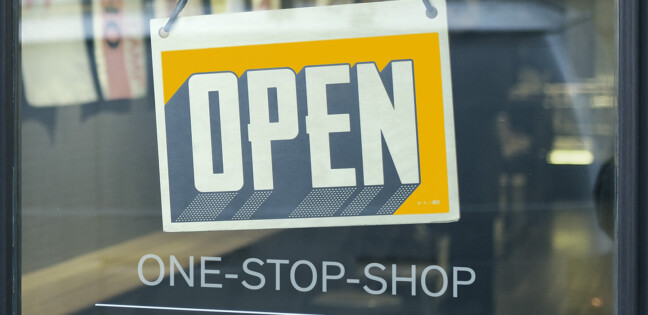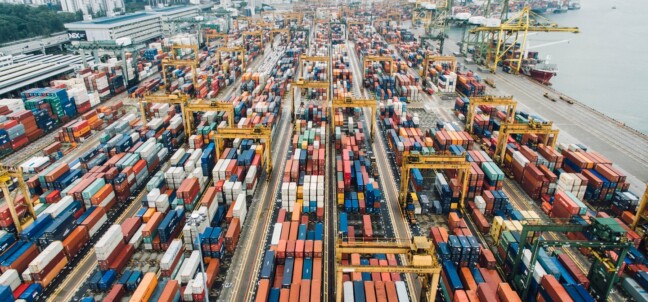Cross-border e-commerce, the online sale of goods across borders, is booming. Globalisation and the internet make it easier than ever for companies to sell internationally.
Important Note for EU Sellers: Since July 1, 2021, the EU’s VAT digital package introduced changes to how taxes are processed for these sales.
Unlocking Growth: How German Merchants Can Thrive in Cross-Border E-commerce
Cross-border e-commerce presents a golden opportunity for German businesses to expand their reach beyond domestic markets. Discover the critical ingredients for success in this thriving landscape!

Understanding EU Distance Selling Rules: What Changed in July 2021
Since July 2021, cross-border e-commerce within the EU has been subject to new “distance selling” regulations. Key changes include:
- Written Declarations: All imported goods now require this, regardless of value.
- Taxation: Most cross-border consumer deliveries (non-businesses) are taxed in the destination country.
- €10,000 Threshold: Exceeding this in annual EU sales triggers VAT registration requirements in every country you ship to.
Understanding the One-Stop-Shop (OSS): Simplifying EU VAT for E-Commerce
The EU’s One-Stop-Shop (OSS), part of recent VAT reforms, makes VAT compliance easier for e-commerce businesses selling goods to consumers across EU borders. Here’s how it works:
- Centralised Reporting & Payments: File one tax return covering VAT for sales in all 27 EU countries.
- Registration Required: Businesses must register to use the OSS. Germany’s Federal Central Tax Office (BZSt) handles this.

Streamline VAT for Non-EU Sales with the IOSS
The Import One-Stop Shop (IOSS) is a crucial VAT procedure for e-commerce businesses selling goods from outside the EU to buyers within the EU. Key benefits include:
- Simplified Tax Returns: File one return for all IOSS-eligible sales across the EU.
- No Import VAT: Avoid import VAT on goods covered by the IOSS.
- Available EU-Wide: All EU member states participate in the IOSS scheme.
Important Note: The IOSS generally applies to low-value goods (under €150).

Don’t Guess on EU VAT Rates: Why a Uniform Price Could Cost You
While using the same price across EU countries may seem more straightforward, varying VAT rates across the EU make this a risky strategy. Here’s how to find accurate, up-to-date rates:
Official But Tedious: Tax authorities in each country or the EU’s TEDB database provide the info, but it’s time-consuming and unreliable.
Need an Easier Solution? Many online tools and services offer automated VAT calculations based on product and destination. These can save you time and prevent costly errors.
Maximise Sales and Compliance: Know Your EU VAT Rates
Navigating VAT across EU borders can take time and effort. Applying the correct VAT rates is crucial for customer satisfaction, legal compliance, and profit maximising.
Ready to optimise your VAT? Calculate your potential savings in seconds with our free, easy-to-use tool!

VATRules: Your Key to EU (and UK!) Compliance and Increased Profits
VATRules takes the complexity out of EU VAT calculations. We provide accurate VAT rates for all 27 EU member states plus the UK, ensuring you always charge the correct amount. This means:
- No more compliance worries: Avoid costly errors and penalties.
- Maximise your sales: Apply reductions and exemptions correctly to boost your bottom line.
- Easy integration: Our system works seamlessly with your product groups
Try VATRules today and see the difference!
Post-Brexit E-commerce: New VAT and Customs Rules for the UK
Since the UK’s exit from the EU on January 1, 2021, significant changes have impacted e-commerce businesses selling to the UK. Here’s what you need to know:
- The EU VAT System No Longer Applies: The UK now operates independently, so the EU VAT system is no longer relevant for UK sales.
- VAT Registration Required: For many foreign online retailers and marketplaces, registering for UK VAT is now mandatory.
- New Customs Regulations: Since the UK is now considered a third country by the EU, new customs regulations apply to cross-border trade.
Since Brexit, the UK is treated as a non-EU country for customs and VAT purposes. This means:
- Mandatory Registration: Businesses trading with the UK must register accordingly.
- EU-UK Trade Now Follows Third-Country Rules: Be aware of new customs regulations and potential additional costs.
- Understanding Northern Ireland: Its unique position within the UK means trade rules may differ.
Need Guidance? Learn how the new UK trade policies affect your business and get help navigating the complexities.







